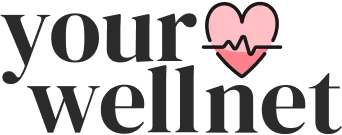Burnout doesn’t happen overnight. It builds quietly, in the space between stress and exhaustion. You start feeling tired, uninspired, and detached from the things you once cared about. What was once motivation becomes survival mode. Recognizing the early signs of burnout is the first step toward reversing it. With awareness and small changes, it’s possible to rebuild balance, rediscover motivation, and protect your mental and emotional energy before it completely runs dry.
Understanding What Burnout Really Is
Burnout is more than just being tired. It’s a state of chronic stress that affects the body, mind, and emotions. It often stems from prolonged overwork, lack of rest, or a feeling that your efforts never add up. Over time, even small tasks feel monumental, and your sense of purpose begins to fade.
While it’s most common in work environments, burnout can arise from any prolonged emotional strain, such as parenting, caregiving, or even creative pursuits. It’s a signal, not a failure. Your body and mind are asking for rest, recalibration, and compassion. Recognizing burnout early allows you to respond with care instead of collapse.
Early Signs to Watch For
Burnout tends to whisper before it shouts. The first signs often include irritability, emotional numbness, and physical fatigue that sleep doesn’t fix. You may find yourself withdrawing from coworkers, dreading the start of each day, or losing interest in things you used to enjoy. Concentration slips, and even small decisions feel draining.
Physical symptoms can include headaches, muscle tension, and disrupted sleep. Emotionally, you might feel cynical or detached, like you’re just going through the motions. When your “normal stress” starts feeling constant and unmanageable, it’s time to listen. Early recognition is key to recovery, because burnout feeds on silence and neglect.
How Burnout Affects Your Body and Mind
Chronic stress triggers a constant fight-or-flight response, flooding your body with cortisol and adrenaline. Over time, this leads to fatigue, weakened immunity, and increased anxiety. Mentally, it blurs focus and emotional regulation, making everything feel harder than it is.
Unchecked burnout can alter your relationship with work and self-worth. You may feel guilty for needing rest or fear that slowing down means falling behind. But the truth is, recovery begins with restoration, not relentless productivity. Your body and brain can’t thrive on depletion — they need stillness to rebuild resilience.
Small Steps Toward Recovery
Recovering from burnout starts with rest, real, restorative rest that goes beyond sleep. Step back from obligations where possible, even briefly. Take time off or lighten your workload. Prioritize slow mornings, nourishing meals, and time outdoors. These aren’t luxuries; they’re medicine for an overworked nervous system.
Once energy starts to return, gently reintroduce structure through small, fulfilling habits: journaling, movement, or creative time without pressure. Avoid rushing the process. Burnout recovery isn’t about “getting back to normal” — it’s about redefining what balance means for you.
Setting Boundaries That Protect Your Energy
Saying no is an essential skill for preventing burnout. Without boundaries, every demand (work, family, social) pulls at your energy reserves until nothing’s left. Identify where your time goes and decide which areas deserve your full attention and which can wait.
Communicate your limits clearly and consistently, even when it feels uncomfortable. Protecting your well-being is not selfish; it’s sustainable. The more you respect your limits, the more you can show up fully in the moments that truly matter. Boundaries are not walls; they’re doors that open only for what nourishes you.
Reconnecting with Purpose and Joy
Burnout disconnects you from the “why” behind what you do. To recover, it’s important to reconnect with activities that bring meaning and pleasure — outside of productivity. Schedule time for hobbies, friendships, or nature walks that replenish energy without expectation.
Purpose doesn’t always have to be grand. It can be found in small joys: preparing a meal, helping a friend, or simply allowing yourself to rest without guilt. Joy and purpose are antidotes to burnout because they remind you of life beyond work — and that you are more than what you achieve.
Choosing Renewal Over Exhaustion
Burnout thrives in silence, but recovery begins the moment you pause and acknowledge what you need. Healing requires both honesty and intention, giving yourself permission to rest, say no, and rebuild slowly. As you begin to recover, remember that rest is not a reward; it’s a requirement. Your worth isn’t measured by output but by well-being. Choosing renewal over exhaustion is how you rediscover not only balance but a deeper sense of self.

